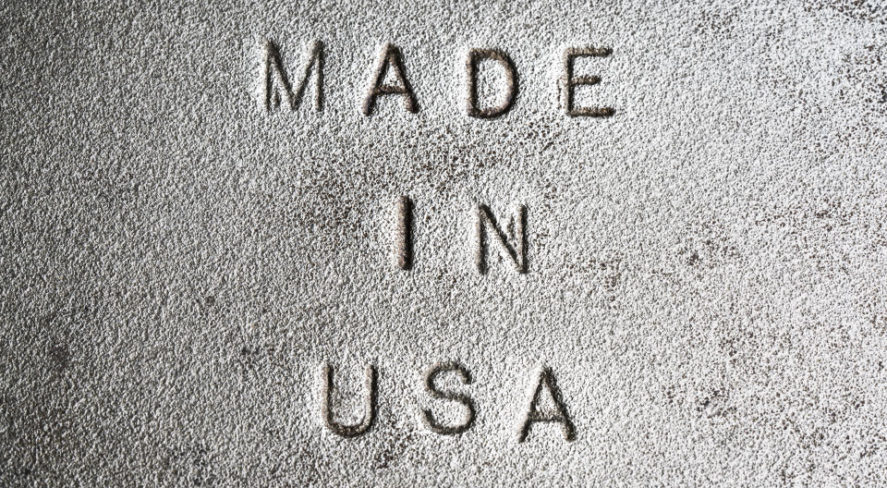What New Buy American Act Rules Could Mean for Security Companies

On Jan. 19, the outgoing Trump administration published a new regulation significantly altering current rules implementing the Buy American Act (BAA) of 1933.
Here, the Security Industry Association (SIA) highlights the most substantial changes implemented in the new BAA regulation as they relate to security products:
- The price preference for domestic (U.S.) end products and construction materials (i.e., the percentage added to bids using foreign end products and construction material) is increased. The proposed rule would increase these – currently 6% for bidders that are large businesses and 12% for small businesses – to 20% and 30%, respectively.
- The domestic content requirement for end products or construction materials to be considered domestic is increased from 50% to 55% (calculated as a percentage of cost).
- A new category of products is created – “end products or construction materials that consist wholly or predominantly of iron or steel or a combination of both” – defined as products for which the cost of the iron and steel content exceeds 50% of the total cost of all its components.
- A higher domestic content standard is created for such “end products or construction materials that consist wholly or predominantly of iron or steel or a combination of both.” – Under the new rule, 95% of the iron or steel components of such products must now be produced in the U.S. for such products to be considered domestic. For BAA certification of such a product, an offeror must make a good-faith estimate (versus detailed tracking of all components) that the cost of the iron or steel content not produced in the United States is less than 5% of the total cost of all components of the end product or material.
- The new rule now applies a domestic content test for commercially available off-the-shelf (COTS) items that “consist wholly or predominantly of iron or steel or a combination of both,” according to the definition above. Previously (and since 2008), all COTS items qualified as domestic if they are manufactured in the United States, regardless of the origin of their components – known as the COTS exemption. This final rule would effectively remove this current exemption specifically for COTS items meeting the definition, which “consist wholly or predominantly of iron or steel or a combination of both.” Note that all other COTS items that do NOT meet this definition would continue to qualify as domestic as long as they are manufactured in the United States, regardless of the origin of their components.
Implications for the security industry:
Most importantly, these changes only affect products supplied within the contract size range where the BAA applies. Many manufacturers of products intended for the federal government are focused on Trade Agreements Act (TAA) compliance as well, as this is a condition for being listed on a General Services Administration federal supply schedule contracts and also applies to a larger range of projects versus BAA. TAA-compliant products are manufactured in a select list of countries (country of origin) and considered “domestic” for federal procurement purposes. Above the applicable threshold, which varies by country of origin, product and project type, a procurement is subject to TAA, and the BAA does not apply. Additionally, for supply contracts, the BAA does not apply to contracts of $25,000 or less.
Where BAA applies:
- For some security products – COTS products with significant iron or steel content – these changes will require a reevaluation of supply sources and/or additional work with customers on BAA waivers, such as non-availability or public interest.
- Electronic security equipment that qualifies as information technology products under the federal definition will continue to be exempt by statute due to the COTS IT waiver BAA (Section 535, Public Law 108-199).
- For other, non-COTS end products, domestic content required to be considered domestic is increased from 50% to 55% (calculated as a percentage of cost).
SIA Perspective:
In November, SIA submitted comments to FAR Council Chair Michael E. Wooten regarding the proposed changes, highlighting the fact that many U.S.-manufactured products are dependent on the COTS exemption for domestic preference where BAA applies. Over many years, U.S. manufacturers that supply the federal government with these items have built their global supply chains, plant infrastructure and U.S. workforce to meet these requirements. We support the aim of these policies to maximize use by the federal government of available goods, products and materials produced in the United States; however, some of the changes, particularly with respect to COTS products, are likely to harm versus strengthen U.S. manufacturing of key products used in our industry.
